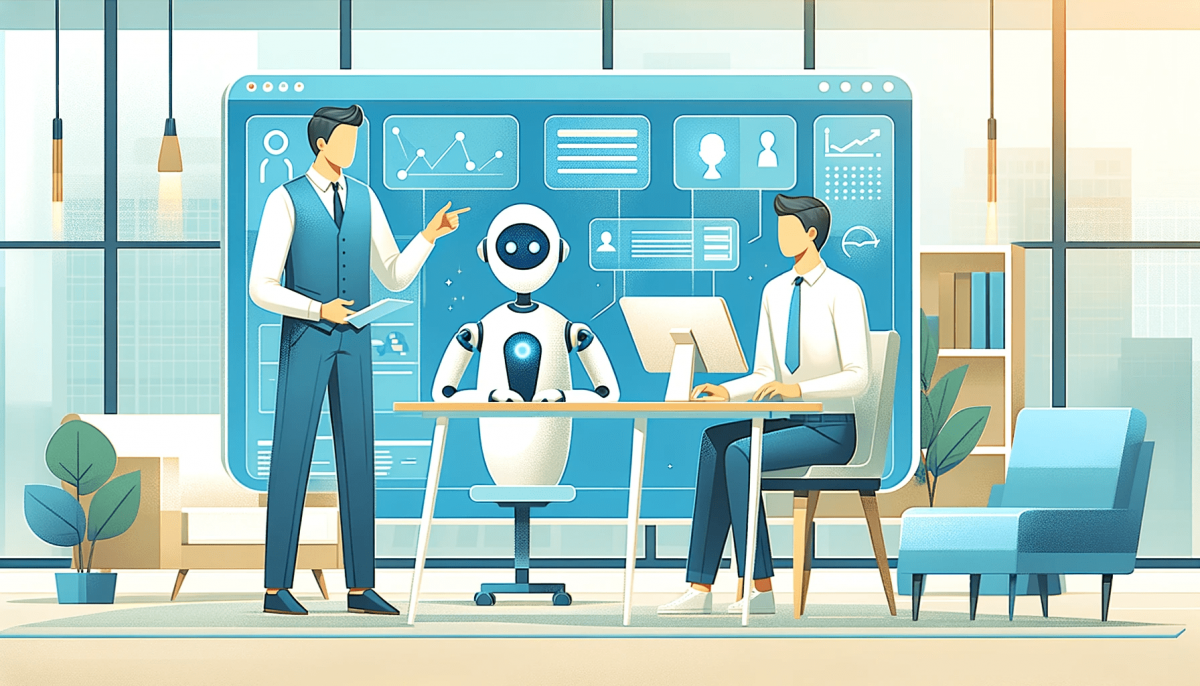Navigating AI in Business: Tasks, Goals, and Agency

Navigating AI in Business: Tasks, Goals, and Agency
Introduction:
In the fast-evolving landscape of business and technology, OpenAI CEO Sam Altman’s assertion that “AI is bad at goals, good at tasks” provides a thought-provoking perspective on the capabilities and limitations of artificial intelligence within the realm of business. This blog post endeavours to explore the implications of AI’s adeptness at performing tasks, its struggles with goal setting, and its potential agency within business operations.
AI’s Proficiency in Tasks
Artificial Intelligence excels in executing specific, well-defined tasks that require precision, speed, and repetition. For example, in the realm of data analysis, AI can process and analyze large volumes of data, revealing patterns and insights that might take teams of human analysts weeks to decipher. In fact, according to a 2021 report by Accenture, incorporating AI into data analysis can increase business productivity by up to 40%.
Moreover, intelligent automation has transformed operational efficiency, as AI-driven systems can manage workflows by orchestrating numerous tasks without fatigue. A study found that AI could help reduce operational costs by up to 38%, signifying a tremendous boon for business growth.
AI’s Struggle with Goals
While AI systems are remarkably proficient at tasks, they lack the ability to comprehend and execute complex goals inherently tied to human insight and strategy. Goals in business require an understanding of not only the numbers but also the company culture, intellectual property, competitive landscape, and customer sentiment, which AI currently cannot fully grasp.
Strategic planning, an integral part of business goal setting, remains a human-centric activity because it involves creativity, flexibility, and an understanding of nuanced market dynamics. The cognitive computing inherent in AI has yet to mimic the human thought process that can foresee market trends and craft visionary business roadmaps.
The Concept of Agency in AI
When discussing AI’s role in business, the concept of agency is important. It involves the degree of independent decision-making allowed to AI systems. Although there are AI applications that perform tasks without human intervention, they operate within a framework established by their developers and confined by specific parameters.
The potential agency of AI in strategic business decisions raises important ethical considerations. The balance between AI autonomy and human oversight remains a delicate interface that businesses must responsibly manage.
Pros and Cons of AI Agency in Business Operations
AI’s presence in business operations offers scalability and efficiency. By automating routine tasks, AI frees employees to focus on higher-value work—a factor that has been central to achieving productivity improvements and growth. Yet, drawbacks such as potential job displacements, ethical concerns, and over-reliance demand a cautious and balanced approach.
Businesses must ensure a mindful integration of AI, where it acts as an enhancer rather than a replacement for human creativity and strategic thinking.
Use Case Scenarios
The deployment of AI across industries has proven beneficial, particularly when backed by real-world examples and statistics. Here are some enriched scenarios:
- In e-commerce, AI-powered personalized recommendations have led to a reported increase in sales by up to 35% for businesses that employ these tools. These AI systems analyze past purchase history, browsing behavior, and consumer preferences to recommend products, thereby enhancing the shopping experience and increasing consumer loyalty.
- Customer service has seen a revolution with the advent of AI chatbots which, through natural language processing, can handle multiple customer inquiries simultaneously. This has reportedly cut down customer wait times by as much as 80% in some sectors and improved resolution rates, thereby saving on manpower and increasing efficiency.
- In finance, AI is instrumental in fraud detection, with systems able to spot irregular patterns in transaction data that a human might miss. Industry reports suggest that AI could reduce fraudulent transactions by detecting and preventing 75% of them.
- Human resource management has vastly benefited from AI as well. Automated screening of resumes has shortened the hiring process by up to 70% in some companies, allowing HR professionals to focus on the more nuanced aspects of recruiting and employee engagement.
- Quality control in manufacturing is another domain where AI has made an indelible mark. AI-enabled vision systems detect defects with over 90% accuracy and have dramatically reduced the rate of returns and recalls for many consumer product companies.
Each of these use cases illustrates the power of AI in handling tasks efficiently and reliably. However, in each scenario, the overarching goals—from improving customer satisfaction to ensuring a high-quality product—remain guided by human strategy and decision-making.
Conclusion:
In summarizing AI’s role in business, we’ve traversed its remarkable capability to perform specific tasks with efficiency and its struggles with complex goal setting and agency. As businesses continue to harness AI technology, thoughtful considerations on its deployment are necessary to fully capitalize on its benefits without undermining the value of human insight and innovation.
Thus, for businesses seeking to stay at the forefront of their industries, the course of action is clear: continue to stay informed on AI developments and judiciously integrate AI solutions into your strategies to ensure they serve the human element of business, enhancing rather than negating it.










